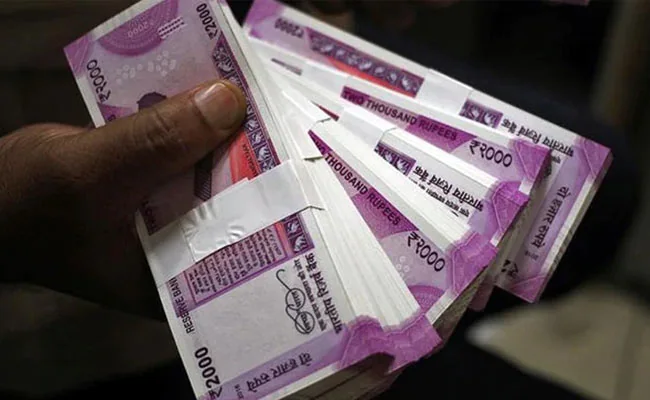Rama Krishna Sangem
Reserve Bank of India (RBI) has made it clear that people can still deposit Rs 2,000 notes in their bank accounts, though their circulation has come to a halt. However, you have to deposit the notes through RBI’s 19 offices across the country. People can send their notes through India Post along with the details of their bank accounts, so that the money will be credited to them. Rs 2,000 notes are still legal currency.
RBI on May 19 this year announced withdrawal of Rs 2,000 notes from circulation and put a deadline of September 30 to exchange their notes. Later, the deadline was extended up to October 7. As per a press release from RBI on November 1, Wednesday, at the time of May 19, Rs 3.56 lakh crore worth of Rs 2,000 notes were in circulation. By October 31, the amount came down to just Rs 10,000 crore. So, more than 97 per cent of Rs 2,000 notes returned.
This is a sharp fall of Rs 2,000 notes in circulation or with people as they amounted for around Rs 10 lakh crore at one time in 2017, just after scrapping of Rs 1,000 notes in November 2016. RBI said the purpose of introducing Rs 2,000 notes was to meet the demand for liquid cash with people. Once the digital payment gateways were introduced and new Rs 500 notes were brought in, the need for Rs 2,000 notes gone, says RBI.
Black money fears gone
According to the media release from Yogesh Dayal, Chief General Manager of RBI, Rs 2,000 note continue to be legal tender. That means, people need not be panicky even if they can’t exchange or deposit them in their accounts even now. The pathetic stories of people losing heavily as they couldn’t exchange Rs 1,000 notes in 2016-17 will not be repeated now.
Another important aspect the whole episode of withdrawal of Rs 2,000 notes is that these notes haven’ t gone into the hands of black moneyed people or mafia, as was feared by some in the government. In fact, a majority of the notes were deposited in the bank accounts while a small portion of notes were exchanged. This means, close to 97 per cent of the notes were not held by the tax evaders.
But, at the same time, the withdrawal of Rs 2,000 notes has dented the image of India among the developed nations, which never withdraw or scrap their currency notes. Only smaller and financially bankrupt countries resort to these methods in the name of cleaning up of their economy. India may have fast forwarded its digital payment methods, but abrupt withdrawal of Rs 1,000 notes has caused much damage to both the people and our image.



